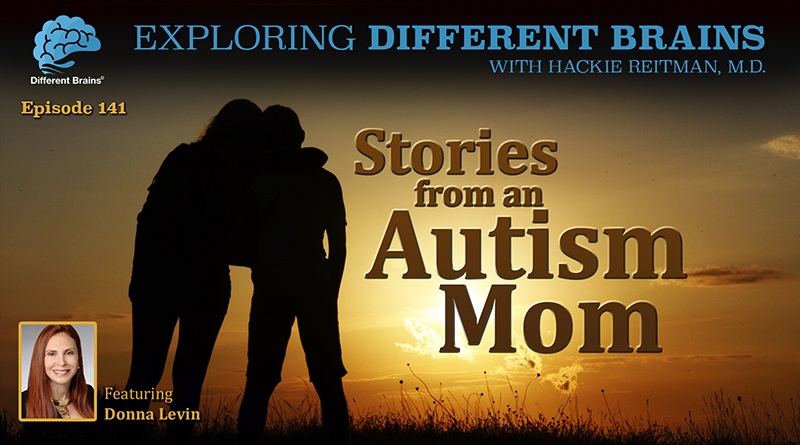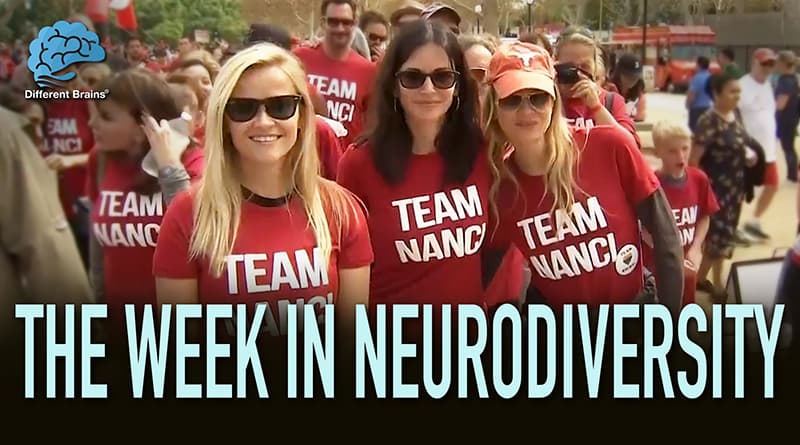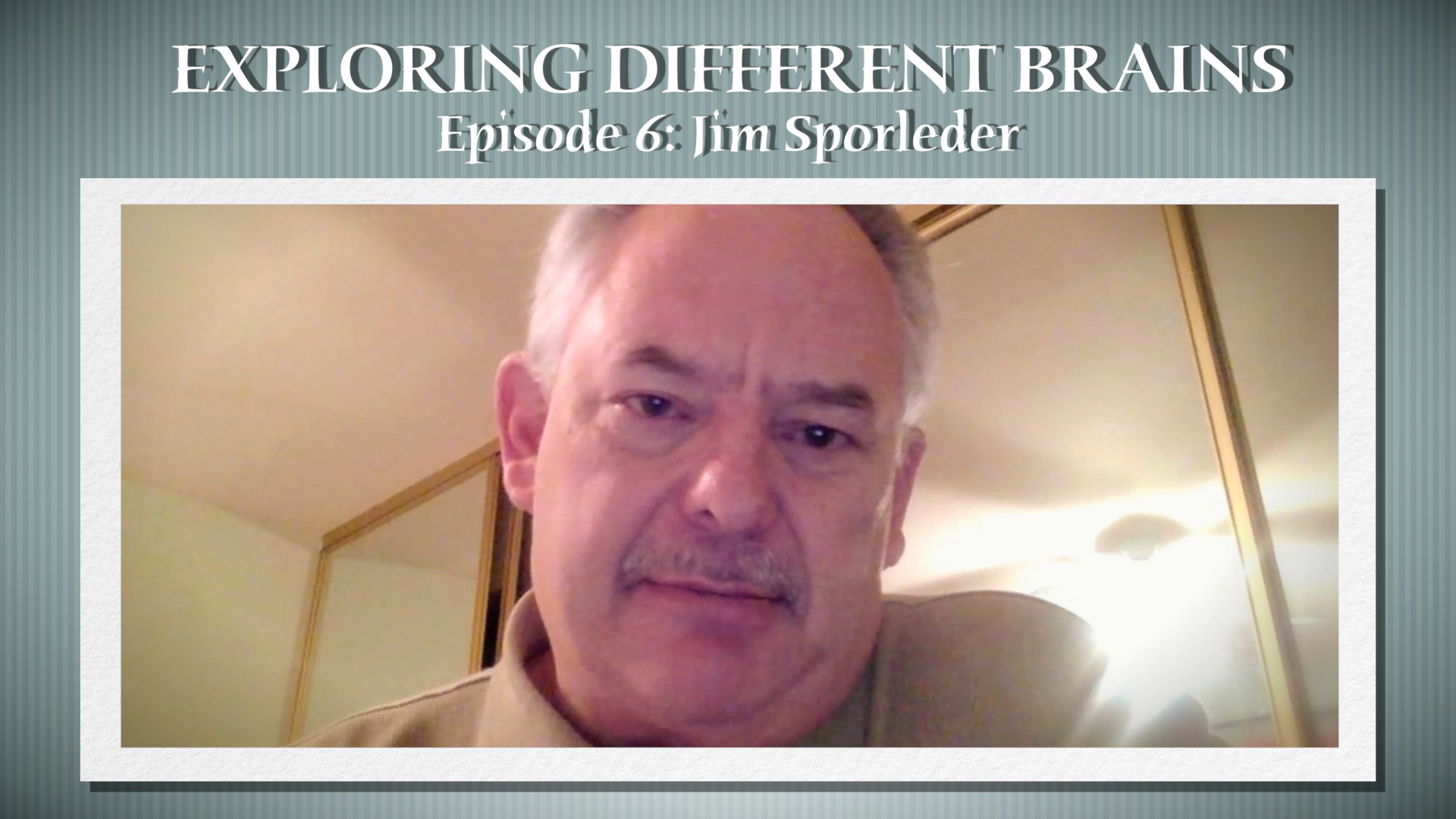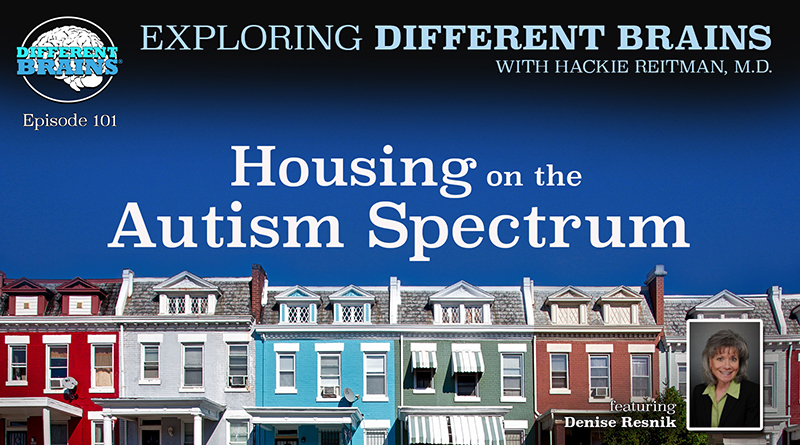
Stories from an Autism Mom, with Donna Levin | EDB 141
In this episode, Dr. Hackie Reitman speaks with author and autism mom Donna Levin.
Donna is the author of Extraordinary Means (William Morrow), California Street (Simon & Schuster) and the recent best-seller, There’s More Than One Way Home (Chickadee Prince Books 2017).Her new novel, He Could Be Another Bill Gates, will be published by Chickadee Prince Books on October 1st, 2018. She discusses her son’s diagnosis, the challenges of writing in the voice of the neurodiverse, and tips for parents of kids with autism.
For more about Donna and her new novel, He Could Be Another Bill Gates: www.donnalevin.com
For Donna’s articles on Different Brains click here
.
To listen or download the podcast version of this episode, see the embedded player below.
Or look for us on your favorite podcast provider:
Apple Podcasts | Stitcher | SoundCloud
[expand title=”View Full Transcript”]
HACKIE REITMAN, M.D. (HR): Hi I’m Dr. Hackie Reitman, welcome to another episode of exploring different brains. We have as today’s guest the author from San Francisco – Donna Levin, who’s latest book, “He Could be Another Bill Gates” is just coming out now. Donna Levin, welcome to Different Brains.
DONNA LEVIN (DL): Thank you, it’s a pleasure to be here.
Getting to know Donna levin
HR: Why don’t you introduce yourself a lot better than I did to the audience.
DL: “He Could be Another Bill Gates” is my 4th published novel and it’s it’s a follow-up book, not really a sequel, to “There’s More Than One Way Home” which was published about a year-and-a-half ago, both by chickadee Prince books. I’ve been a writer for all my life, not necessarily a good writer but I’ve always been a writer. I like to quote John Gardner who wrote in his own book on becoming a novelist that “nothing’s harder than being a novelist unless that’s all one wants to be in which case while being a novelist is hard everything else is harder” and that describes it pretty well so I’ve occasionally deviated from, if I may be so pretentious the calling of writing novels and it’s never worked out very well so that’s what I’m back to doing full-time when you tell somebody who writes three or four hours a day the say, “What do you do the rest of the day?”, but believe me it takes all day to get those three or four hours in so. You know I was a teacher for a long time at UC Berkeley extension, not doing that right now, for you know very little pay for a lot of work and im just taking a break ok, so that’s a good overview.
HR: Well you got a lot going on, you bringing up four kids, you’re doing many other things, you’re writing four books, everything’s four with you.
DL: Well I must say it’s a lot easier now that they’re older those early years were kind of tough trying to work right and got four kids at home.
Parenting a son on the autism spectrum
HR: Well tell us about you know Wills diagnosis, tell us about the journey you’ve had, you know as a mom and how you adapted to it.
DL: Well I’ll be honest and say it was a tough time, we had no indication at all there was something amiss or you know, atypical until he was about 2 and 1/2. When I look back now I see that his growth motor skill milestones were delayed but that’s nothing you worry about past the age of 5 once the kid gets there and then he started reciting the scripts from videos that he watched or from TV shows that he watched, and at first frankly we thought, “Oh isn’t he brilliant he’s memorized the script whens he’s only seen it once”, and then gradually there’s a dawning, this dawning an easy recognition that that’s not necessarily a good thing, but I know with us you fight it a long time because you just want to think your kid is going to have an easy life and is like every other kid and you know that was some, we, we finally got a diagnosis, actually in those days it was called PDD, wasn’t until several years later that I really started to hear about the autism spectrum and Asperger syndrome and all those things now everybody knows about the Autism Spectrum.
But I will say that things get a lot better, the early intervention is really crucial within a year of not necessarily diagnosis but knowing that he needed some intervention, he blossomed quite a bit, he’d been very fearful, he’d been very rigid and he became you know much more flexible and the tantrums stopped, and he started a really terrific preschool out here, right by the school district with a really incredible teacher, you know they’re hard to find these people, talk about a calling, had a calling to work with not typical kids, you know diverse kids and then he went, he went to kindergarten at a public school, it’s interesting that he was only in the second year of the schools full inclusion program so there was still a lot of resistance among the staff and if I may say I’m one of these people now among the older staff in particular, you know, people my age, who thought, “well I wasn’t trained in special ed, I don’t have to deal with this etc.”, but with each passing here everybody got with the program more and more and this was his, he was at this school through eighth grade and it turned out to be a really positive experience, he was elected to the Student Council, you know he had plenty of friends, plenty of activities there. It’s, now that he’s a young adult actually, that he though, that he really has a community and I think that’s what our son is about, is community for the neurodiverse and if I may, I accompanied him to the Power MorphiCon just about a week and a half ago, that’s the Power Ranger convention in Anaheim its our fifth time, i think he’ll could go without me next time but O.M.G. those are his peeps, they just surrounded by people who just get him, get each other, we just had a fantastic time, and i did too because I was in the hotel room with room service and a rented movie, was great.
Creating neurodiverse characters
HR: Now, you being an author, how much has your son Will inspired your books.
DL: Well these last two books quite a bit, in the early years, I always drawn on my own life in my fictional low, also heavily fictionalized it and my first novel was about a family that was very much about my family of origin, but, so “There’s More Than One Way Home” is a story about a mom with a ten-year-old son on the Spectrum but “He Could Be Another Bill Gates” although its the sane mom 5 years later the boy now is 16, his name is Jack and he’s inspired by Will but he’s only inspired, he’s very much a fictional character, and I write from his point of view and readers seem to like him.
HR: How do you, how do you do that, how do you get in the mind in, into that character that’s a talent, that maybe your best talent as a writer too I mean to be able to do that, you know, just why I’m asking the question is one of the things I think that gets overlooked in one of the, you know great authors I think you know Stephen King was his ability to remember and get into the character of what it was like to be a child who, are not little adults like in his in his “IT” you know and then you say oh my god I’ve forgotten when I was a kid that’s how it was, and your able to do that get into the inside the mind of somebody on the Spectrum tell us about that.
DL: You know I think that every writer has to use her imagination quite a bit I’m sure that people who read it and say no that’s not right you got it wrong but you know if I can only write from the point of view of a middle-aged white Jewish woman is going to be a very narrow perspective, so you know the writer has to be able to write about from the point of view of the opposite sex or older people younger people, people of different background there’s a lot of controversy now about cultural appropriation and I’m sympathetic to that of course but I think sometimes it may go too far, so I hope nobody comes back and says you have no right to write from the point of view of the neurodiverse.
“He Could Be Another Bill Gates”
HR: What else would you like to tell us about your upcoming book “He Could be Another Bill Gates.”
DL: Well let’s see it’s, it’s about making a new family. Anna is the mom at the coincidence, she’s not named after my daughter, although it is one of my favorite names so that’s maybe how she ended up my daughter’s name to but Anna is as the mom her – she – her marriage broke up in a very unpleasant way five years before and now she’s a single mom and she has Jack and then she has — who is five and extremely precocious and her ex husband wants to think she’s gifted but probably isn’t but this is an outlet for his unfulfilled ambitions and she meets somebody else the man who also has a son who’s on the spectrum that’s Jacks age and it looks like they may have a future together but there are two ex-spouses in the picture who are to do their best to keep that apart and then of course there’s Jack himself, the book opens with him on the first day of school, meeting a young woman, Ashley, who has dreams of saving the world and takes an interest in Jack and of course he misunderstands that interest and is trying to win her heart at the same time that she is a very nice person but she has her own agenda and her own problems, so there’s really the stories of the mom, and the story of the son with their own romantic pursuits and although I emphasize that this that Jack it’s not well, but I like to think of him as a tribute to Will at the same time, he’s heroic, he’s persistent, he is devoted and loyal and loving, he has to fight certain obstacles that people don’t always understand but he just never ever gives up, and, you know that’s that’s that story.
HR: Well we look forward to the release in October and we can certainly all use another lesson in determination, and how does our audience who wants to learn more about you, how did they learn more about you.
DL: Well I finally have a new website , I had an old website that had the blog on the homepage but if you don’t get that log updated then it starts to look embarrassing, anyway new website donnalevin.com, not sure how I came up with, but there’s not a lot of personal information there because I just hate when people start listening all everything they’ve ever done you know I lived in Paris for a year and I have a law degree, and both of which are true by the way but then it starts to sound kind of pathetic and I have a Wikipedia page which also doesn’t have a huge amount of information but you can find me on wikipedia also and what else, and beyond that there’s not a great deal that’s interesting, I mean anything that’s interesting is in the books.
Tips for Autism Parents
HR: If someone in our audience is just receiving the news that their child has a diagnosis with autism, what is the one message you would want to give them right here on different brains.
DL: The one message would be that the future is yet to be written, that don’t take this as any kind of death knell or about ominous warning about unemployment and institutions, it’s not, its just not. It’s completely unpredictable how kids and even adults develop and resources and awareness is increasing all the time, so there’s a lot of a lot of good things you can do there’s a lot of great things your kid can do, that would be number one.
HR: Tell us.
DL: Number two would be to.
HR: Oh no I didn’t mean to interrupt you start with what number two would be.
DL: Number 2 would be getting involved in the community, the autism Community, that’s where there’s a lot of support and understanding and networking in terms of other… other resources.
HR: What other upcoming projects are on the drawing board for Donna Levin.
DL: Well I’m working on a new novel and I thought this one would be the easy one, after all I’ve written several and it’s not been easy, its changed a lot even in the year plus I’ve been working on it but it’s about, it takes place in Marin County and its about four women of a certain age that get together in a support group use a talking stick, this talking stick may have some kind of power, they’re not sure.
HR: Oh boy see I love talking to authors when they’re at that stage it’s far enough down the road where it’s got a little bit of body to it but you got a lot of leeway so I’m not going to ask anymore I’m not going to ask anymore.
DL: There’s not much more I can tell you.
HR: We hope you keep the books coming Donna Levin and it’s been a pleasure to have you here and I hope that your son Will and your husband Michael keep up the good work on the board of the AASCEND organization and to your daughters and everything else you’re a terrific role model as a mom and an author and all of the different things you do so thank you so very much for being with us here.
DL: Thank you
[/expand]




